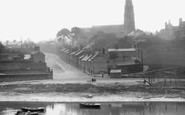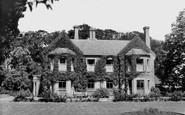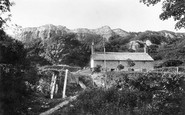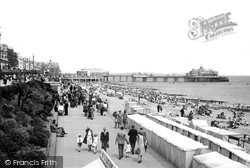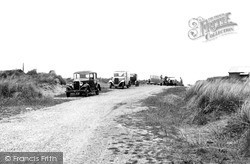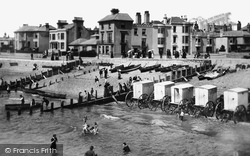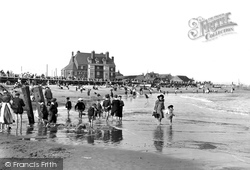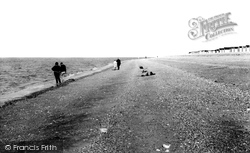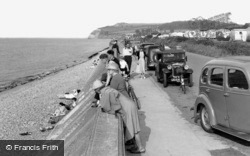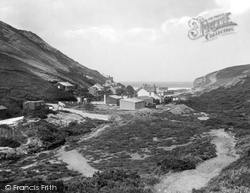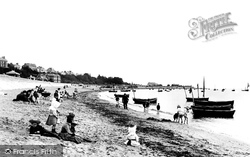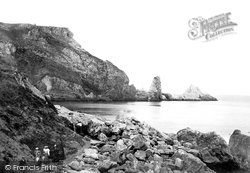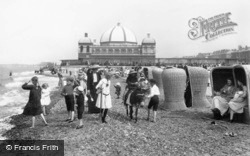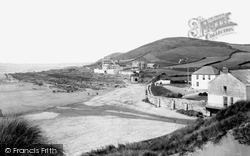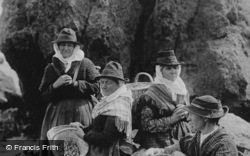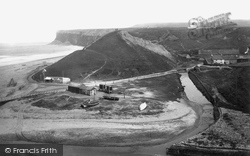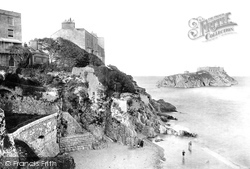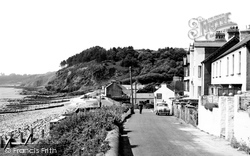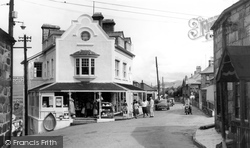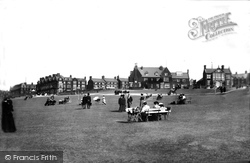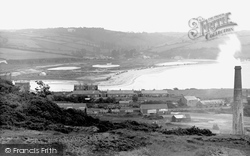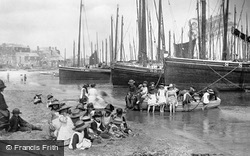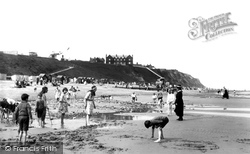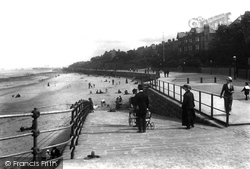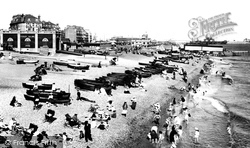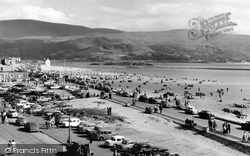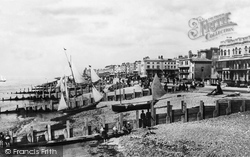Places
12 places found.
Those places high-lighted have photos. All locations may have maps, books and memories.
Photos
191 photos found. Showing results 681 to 191.
Maps
115 maps found.
Books
1 books found. Showing results 817 to 1.
Memories
1,374 memories found. Showing results 341 to 350.
English At Heart
I am an American who went to school in Chester in 1966/67. Rather, should I say, I was registered for school at Chester College. However, I can't say I was actually in the building very often. There just always seemed to be somewhere ...Read more
A memory of Chester in 1966 by
Equis Coffee Shop
I remember spending most of my night in Equis with all my mates and we used to have a great time listening to the jukebox etc, flirting with the lads. Does anyone remember? Jennifer Stratford Midge Pigford ...Read more
A memory of Easington Colliery by
Escric Station
I was born on the 13 February 1957 at No2 Station cottage Escrick. No.2 was the middle cottage of 3. My father (Kenneth Hudson) was a fireman/driver on L.N.E.R. steam locos. For along time we had no electricity in the house, Lighting ...Read more
A memory of Escrick by
Etheldene, Walcot
My mother and us 4 girls stayed every year for several weeks of the summer holidays. I was the eldest (born in 1935). Our Dad came down from Norwich at weekends. This was probably about 1945 - 1953. My mother was a sports teacher before ...Read more
A memory of Walcott by
Evacuated To Borth
I think it was about 1939-41 that my mother, Florence O'Donovan, my sister Sheila and I went to Borth with Mrs Back and her children Joan and Guy to get away from the danger of living in Norwich which was a target for bombing during ...Read more
A memory of Borth in 1930 by
Evacuation To St Merryn
My sister and I were evacuated to St Merryn in 1940. I was aged 6 and my sister aged 11. We lived in Bermondsey, London. I shall always remember our first night in St Merryn. We were sitting in the School Hall,and were the ...Read more
A memory of St Merryn in 1940 by
Evacuation To Combpyne
My sister Margaret and I (nee Rayner) were evacuated to the home and caring of a friend Olive Tuck who had a cottage next to a farm just out of Combpyne. Across the fields where we were allowed to play, was the path to Landslip ...Read more
A memory of Rousdon in 1942 by
Evacuee
My Grandmother rented a cottage (Era Goch) during the war and I went to live with her as a sort of evacuee. I used to attend the one room school in Dwyran. I played with my friends on the beach. I don't know how we did not drown as we would go ...Read more
A memory of Dwyran in 1940 by
Evacuee
As a five year old I was evacuated to Abertrdwr, returning to Birmingham when I was seven.The old school, destroyed by fire I gather, was my first. I first stayed with a family that kept a couple of geese. I was very upset that Christmas. ...Read more
A memory of Abertridwr in 1940 by
Evacuees
This memory is a bit vague as it relates to my aunt who was evacuated from Tottenham, North London to The Lizard in 1940. Sadly she died a few years ago and I have been trying for a while now to find out exactly where she stayed and which ...Read more
A memory of Ruan Minor in 1940 by
Captions
1,131 captions found. Showing results 817 to 840.
This more distant view also shows the columned enclosure that surrounded the 'squashed onion' domed central bandstand which provided an upper gallery of seating, all set on a projection onto the beach
The unmade road leads from the village to the beach. The sand-dunes are covered with marram grass, which helps knit them together and prevent erosion on this windy coast.
Bathing machines were still very popular at Bognor in 1890 - it was not until the Edwardian era that people changed and swam from the beach.
This is a fine view of the 'lost beach' of Gorleston, so named because after years of erosion it has been reduced to a fraction of the size we see here.
Heacham has the distinctive flat beach of this part of the West Norfolk coast.
With the railway came tourism, first with beach huts, then chalets, and, in the 1950s, caravan sites.
One of the few places on the north coast with access to a fine sandy beach and increasingly popular with surfers, Porthtowan is seen here in its early years of development and is hardly recognisable today
At the beginning of the last millennium, marauding Danes landed on these sandy Devon beaches and put the village of Exmouth to fire and sword.
Anstey's Cove, with Redgate Beach hidden on the left, was a favourite bathing spot for Agatha Christie, who was born in Torquay in 1890.
Hence Rhyl has become noted for the number of children that visit it, and these little ones find an inexhaustible fund of pleasure on its beach. The iron pier was built in 1867.
Once a sleepy Devon backwater, Croyde's beach and bay was discovered by holidaymakers in the 19th century. With two huge caravan parks, this area fills up dramatically in the short summer season.
Posed on Goscar Rock on Tenby's North Beach, these women were paid for their work as models.
There are swings on the beach (extreme left of picture) and tea, refreshments and hot water can be obtained from the café by the roadside.
Traditionally in the ownership of wealthy occupants, the private steps leading down to the beach still belong to these houses, except those on the extreme left.
The groynes on the beach indicate the ferocious tidal currents; in 1931 these currents seriously undermined a row of cottages up the road on the seaward side, that were subsequently
The ice cream shop on the corner is also stocked with plastic beach balls and even a paddling pool.
Then building began in earnest as visitors flocked to enjoy its safe, sandy beach and bracing cliff-top walks. The new town is gathered around an expansive green.
It can be appreciated from this photograph how the bleak area of beach and pools resulted from the infilling of the bay by silt and sand from the china clay industry; the old cliff line
The children are bare-footed, not just because they are on the beach; boots were worn only on Sundays.
Two routes are to be seen in the background leading to the beach. To the right, the private steps (now lost) from the Manor Hotel led to their own promenade.
A family walk down Magazine Lane Slipway onto the beach. This is close to the site of the magazines: ships entering the Mersey had to deposit any gunpowder there during their stay in port.
A row of small fishing boats is drawn up on the beach; they were used to gather shrimps and lobsters. A lifeboat station (left background) was at the ready to cope with any rescue missions at sea.
A hugely expansive beach here means that it never fills up with holidaymakers in this popular resort and former fishing and trading port.
Prior to that it had been little more than a settlement of fishing cottages down by the beach, below the village of Broadwater.
Places (12)
Photos (191)
Memories (1374)
Books (1)
Maps (115)



